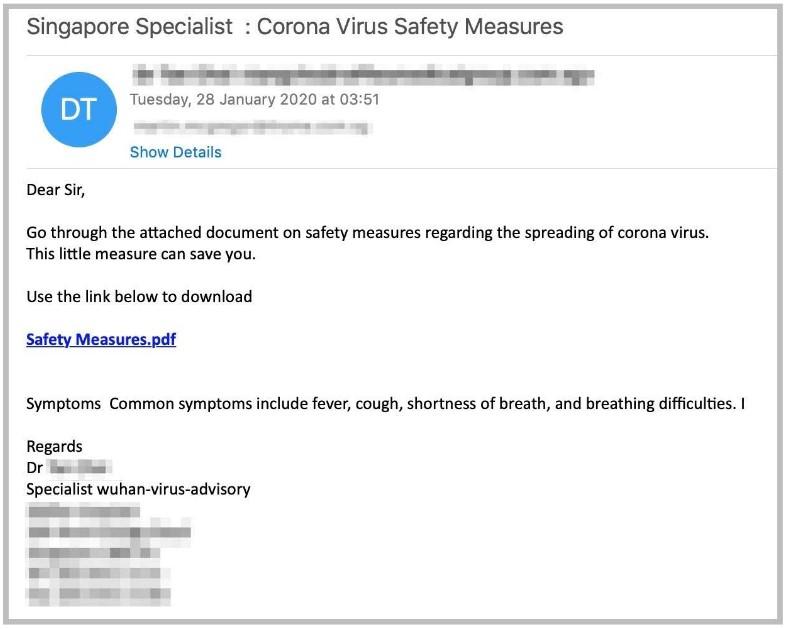The worldwide spread of COVID-19, or the Coronavirus, has put most people in a heightened state of alertness. During this time, it’s more important than ever to be aware of dangerous schemes that want to steal your personal information and money. You should also know how to spot and avoid false information about the pandemic.
Let’s look at some tips for staying safe online during this time. While it might not be your first concern with everything going on, it’s still quite important.
Avoid Phishing Emails, Texts, and Calls

Phishing emails, which deceive you into providing account credentials or other personal information, often play on your emotions by creating urgent situations. Unsurprisingly, scammers have used the spread of the virus to craft phishing emails.
Be very careful of any emails, text messages, or phone calls you receive about COVID-19. At this time, there is no vaccine or cure for the disease, so any message claiming that is lying.
You should also keep an eye out for messages claiming to be from the CDC or other trusted entities. These may warn that you need to visit a health center for a safety procedure, offer a download of “tips” on how to stay healthy, or provide an update on workplace policy concerning the virus.
When in doubt, treat all messages about the virus as suspect. If you’re not sure, reach out to your boss or visit a trusted website directly to check for more details. Do not click on links in emails or open any attachments. And hang up if you get a call about virus cures, work from home opportunities, or similar scams.
We’ve talked before about how to spot phishing emails; those general tips apply here too. Spelling mistakes, generic greetings, and pressure to act now are all signs of a phony email.
Beware Misinformation
https://www.youtube.com/watch?v=1APwq1df6Mw
With the always-connected nature of news websites and social media, false or misleading information can spread rapidly.
Before you believe any updates or claims related to the Coronavirus, you should take a step back and consider the source. Don’t share news articles on Facebook or pass along details until you’ve vetted the story. Anyone can make seemingly true claims that are completely false in reality.
For accurate information, visit sources you know are legitimate. The CDC has a dedicated portal for Coronavirus; you’ll also find information on the WHO’s COVID-19 page.
You can do your part by refusing to spread rumors and other misleading information until you’re reasonably sure that it’s accurate.
Don’t Fall for Fake Charities
Every time a crisis happens, people exploit the tragedy to make money from people’s generosity. You should be wary of any charities or crowdfunding sites that push you to make donations related to the virus.
Use Google to research companies you’re not sure about, and stay away from anything that pressures you into giving money right away. If you do decide to donate money, it’s best to support a local charitable organization or one known to be trustworthy.
Secure Your Devices and Network
Due to the outbreak, more people are working at home than ever before. Chances are that you don’t have all of the security protections in place at home that you do at the office. This means that there’s a larger attack base for malicious actors, so you need to keep your home network and devices safe.
Follow our general security practices to make sure you’re protecting yourself as much as you can. Make sure you install OS and app updates in a timely manner, and use firewall/filtering software to block malicious web requests. You might also consider using a VPN to protect your web traffic.
Stay Safe During a Crisis Situation
A pandemic is scary, so bad actors love to prey on your emotions during times like these. This is all the more reason to keep yourself protected online. Make sure you don’t click on any unfamiliar links, avoid sharing information that doesn’t come from a trusted source, and keep your home network safe as you rely on it more.
For more advice, check out our complete guide to working from home if doing so is new to you.
